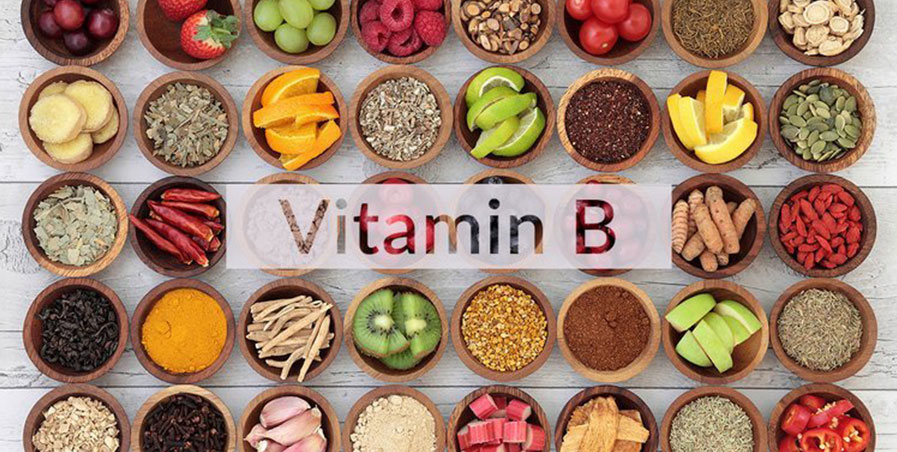
3 Must-Have Nutrients After A Hijama Treatment
If you want to go one step further to maximise the benefit of your Hijama (Wet Cupping) treatment, it is essential to fuel your body with the necessary nutrients and minerals. After losing blood during your Hijama treatment, you need to help replenish the red blood cells in your body. The 3 major vitamins and minerals you need are; Vitamin B (6,9 & 12), Iron and Copper.
 Vitamin B12 works closely with Vitamin B9 (otherwise known as folate or folic acid) to help make red blood cells and allow the Iron in your body to work better.
Vitamin B12 works closely with Vitamin B9 (otherwise known as folate or folic acid) to help make red blood cells and allow the Iron in your body to work better.
 Vitamin B6 helps the body break down protein into amino acids as well as build healthy red blood cells.
Vitamin B6 helps the body break down protein into amino acids as well as build healthy red blood cells.


 Chicken
Chicken
 Turkey
Turkey
 Liver
Seafood
Liver
Seafood
 Fish
Fish
 Mussels
Mussels
 Shellfish
Vegetables
Shellfish
Vegetables
 Greens, all kinds e.g. spinach
Greens, all kinds e.g. spinach  Tofu
Tofu  Broccoli
Broccoli
 Sweet Peas
Sweet Peas  Broccoli
Broccoli  Brussel Sprouts
Brussel Sprouts
 Kale
Kale  Bean Sprouts
Bean Sprouts  Tomatoes
Tomatoes
 Lima Beans
Lima Beans  Potatoes
Potatoes  Green Beans
Green Beans
 Cabbage
Cabbage  Beets
Beets  Corn
Corn
 Foods that contain Copper:
Foods that contain Copper:
 Beef Liver.
Beef Liver.
 Sunflower seeds.
Sunflower seeds.
 Lentils
Lentils
 Almonds
Almonds
 Dried apricots
Dried apricots
 Dark chocolate
Dark chocolate
 Asparagus
Asparagus
1. VITAMIN B (6, 9 & 12)
Why is Vitamin B so important for red blood cell production?
We need Vitamin B for several vital bodily functions, which include energy and red blood cell production. It is crucial to have these vitamins in your system especially after you have lost blood.Foods that contain Vitamin B:
Vitamin B6: Potatoes, bananas, seeds, nuts, fish, eggs and spinach. Vitamin B9: Liver, dried beans, asparagus and green, leafy vegetables like spinach and kale. Orange juice is another source of folate. Cereals and rice also can contain this vitamin. Vitamin B12: Beef liver and clams, which are the best sources of vitamin B12. Fish, poultry, eggs, dairy and nutritional yeasts.
2. IRON
Why is Iron so important for red blood cell production?
Iron is a vital component of blood production because it carries oxygen to your tissues. About 70% of your body’s Iron is found in red blood cells, called haemoglobin, and in muscle cells called myoglobin. Hemoglobin is vital for moving oxygen in your blood from the lungs to the tissues. Myoglobin, in muscle cells, accepts, stores, transports and releases oxygen. Without iron, your body cannot maintain or produce healthy red blood cells. Because your body must begin to make new blood cells, eating foods that contain iron after losing blood can give you a good start. Eating foods rich in vitamin C, like citrus fruits, increases absorption from plant sources of iron.
Foods that contain Iron
Meat and Poultry3. COPPER
Why is Copper so important for red blood cell production?
The mineral Copper is essential for making healthy red blood cells. Copper serves as a cofactor for an enzyme involved in the coagulation of blood. The blood vessels are surrounded and protected by connective tissue, and copper helps to strengthen their elasticity, especially for the aorta and smaller arteries. Copper deficiency can lead to circulatory problems and low blood pressure. Copper is an essential mineral that helps the body use the iron in the bloodstream. If there is not enough copper in the body, it can be difficult for the body to absorb the iron the blood cells need to survive. Foods that contain Copper:
Foods that contain Copper: